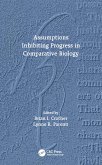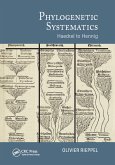At a time when selectionist explanations are being brought forward to explain an ever-widening range of phenomena, this book analyzes the explanatory structure of Darwin's theory of natural selection. It shows there are aspects of the theory that are not totally understood, creating problems in contemporary uses of the theory to explain the world. It takes a much-needed thoughtful look into the working parts of the theory of natural selection to provide better understanding of the theory and its role in contemporary science and life.
Dieser Download kann aus rechtlichen Gründen nur mit Rechnungsadresse in A, B, BG, CY, CZ, D, DK, EW, E, FIN, F, GR, HR, H, IRL, I, LT, L, LR, M, NL, PL, P, R, S, SLO, SK ausgeliefert werden.









